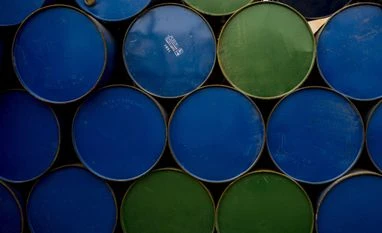India reimposes windfall tax on crude oil, levy on diesel exports scrapped
Latest move to reimpose windfall tax on crude oil means that now only domestically produced crude oil will attract a windfall tax of Rs 6,400 per tonne while petrol, diesel and ATF will remain exempt
BS Web Team New Delhi India has reimposed special additional excise duty (SAED) on domestically produced crude oil, The Economic Times (ET) has reported. SAED is commonly known as windfall tax.
The tax has been reintroduced at Rs 6,400 per tonne on domestically produced crude oil. On the other hand, the levy on the export of diesel has been scrapped.
The Centre has made no changes to the windfall tax exemption given to petrol and ATF in the last announcement on April 4.
On April 4, the Centre scrapped windfall tax on domestically produced crude oil and petrol. The windfall tax on the export of diesel was halved to Rs 0.50 per litre.
The latest move to reimpose windfall tax on crude oil means that now only domestically produced crude oil will attract a windfall tax of Rs 6,400 per tonne while petrol, diesel and ATF will remain exempt.
A notification issued by the Central Board of Indirect Taxes and Customs said that the revised duty will be applicable from April 19.
In the April 4 notification, the Centre had slashed windfall tax on crude oil from Rs 3,500 per tonne to zero, while the levy on diesel was reduced to Rs 0.50 per litre from Rs 1 per litre previously.
India first introduced windfall profit taxes on July 1, 2022. In doing so, India joined a growing number of nations that tax unprecedented profits of energy companies. At that time, export duties of Rs 6 per litre ($12 per barrel) were levied on petrol and ATF, and Rs 13 a litre ($26 a barrel) on diesel.
Windfall tax is levied by the Centre on profits made by oil producers on any price they get above the rate of $75 per barrel.
What is the windfall tax?
As the name suggests, "windfall" refers to a dramatic increase in profits. A windfall tax is an arrangement put in place by the government to impose a higher tax on specific industries when they experience unexpected and above-average profits.
For instance, the recent Russia-Ukraine war resulted in unexpected profits for the oil and gas industries. A windfall tax was thus imposed on these industries.
)